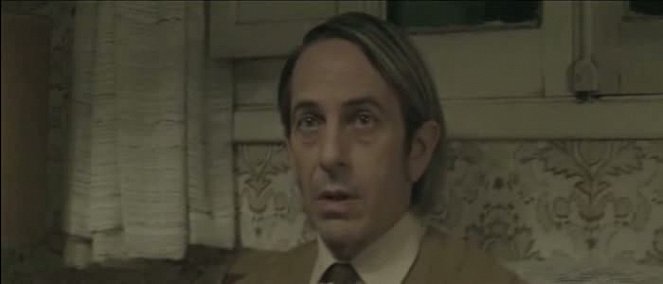Rendező:
Pablo LarraínOperatőr:
Sergio ArmstrongZeneszerző:
Juan Cristóbal MezaSzereplők:
Alfredo Castro, Antonia Zegers, Marcelo Alonso, Amparo Noguera, Jaime Vadell, Marcial Tagle, Aldo Parodi, Ernesto Malbran, Constanza B. MajlufStreaming (1)
Tartalmak(1)
Az 1973-ban, Pinochet hatalom átvétele alatt, Chilében játszódó film főhőse egy férfi, aki halottasházban dolgozik és beleszeret egy táncosnőbe, akinek politikai okok miatt bujkálnia kell. (CirkoFilm)
Recenziók (2)
A "Szerelem a kolera idején" cím jobban illett volna a filmhez, mint az azonos című regényhez. A szomorúságon túli komor dráma, közelebb a halál szagához. Larraín minimalizálja, amit csak lehet, még arra sem veszi a fáradságot, hogy úgy állítsa be a kamerát, hogy a színészek arca látható legyen, amikor sírni kezdenek, és kilógatják a fejüket a képből egy több perces statikus jelenetben, amelyben csendben ülnek a konyhaasztalnál. Furcsa, magányos karakterek, élet, szerelem, emberség és napsütés nélküli légkör, egyre több hulla a hullaházban. Ritkán pillanthatunk a főszereplő lakásán, a kórházon vagy a hullaházon kívülre, és akkor is csak színházilag megrendezett környezetbe. Az utolsó jelenet először próbára teszi a néző türelmét, hogy végül kiszabadítsa, és segítsen megérteni a filmet, és különösen annak elnyújtott poétikájának értelmét. És hagyja, hogy a néző elátkozza vagy tudomásul vegye a hozzáállását.
()
The events of the bloody military coup, which overthrew the government of President Allende in September 1973, were important milestones in the Cold War. In my generation, the coup was common knowledge, albeit distorted through the lens of the Iron Curtain and the bipolar world. I fear that the majority of today's viewers will not be able to orient themselves in the story, especially considering that director Pablo Larraín does not make it any easier for them. He does not explain, nor analyze; we simply experience the coup subjectively through the peculiar pathologist, who silently and with a stony look on his face, observes the mounting piles of corpses on the floor, the groaning of the wounded, and the rising fear in people's eyes. We witness the examination of President Allende's body and the first isolated acts of resistance against the terror. Great histories are written on the streets and stadiums, while here, we rather clean up what is left of the old, shattered world. Mário is a man without expression or emotions, except for his fondness for a local theater dancer. He has no family or friends, no past, and no meaningful future. He is merely an inconspicuous observer of events that have exceeded even the darkest scenarios and imaginations. Overall impression: 75%.
()

